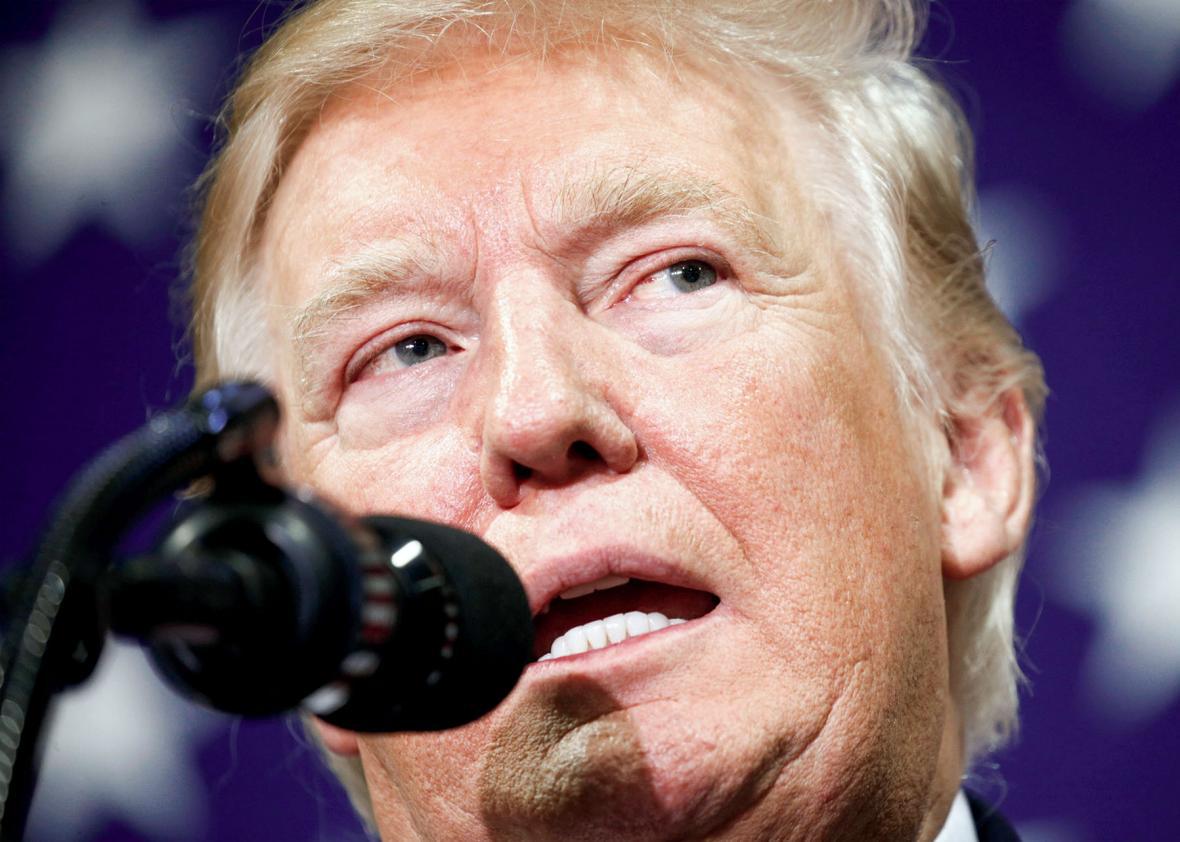Donald Trump was destined to have a difficult first year as president. He wasn’t just a minority president, selected by quirk of the electoral process; he was a political novice with no experience of public office and a uniquely divisive figure, who stoked white racial resentment to fuel his ascendancy. And while he had the advantage of a Republican Congress (with a decisive majority in the House of Representatives), he was ill-equipped to use it, entering office with few plans or proposals outside of executive actions.
But every president has challenges to overcome. Trump’s promise was that he could bring his business acumen to bear on America’s problems, substituting raw deal-making talent for knowledge and experience.
Far from accomplishment, however, what we’ve seen from Trump and Congress is failure and dysfunction. For comparison’s sake, at this point in his presidency, Barack Obama had signed a major stimulus package and was barreling ahead on health care reform. George W. Bush had signed his first round of tax cuts and was shepherding education reform through Congress. And Bill Clinton had worked successfully with Congress to raise taxes on the wealthiest Americans and expand the Earned Income Tax Credit.
President Trump, by contrast, has nothing. Obamacare repeal is a bust, his infrastructure plan doesn’t actually exist, and his push for comprehensive “tax reform”—meaning a series of upper-income tax cuts—has yet to translate to an actual plan or proposal. That might be manageable if it were the only item on the agenda, giving Trump and Congress time to work on a package acceptable to all sides within the Republican Party. As it stands, the president’s tax ambitions are competing with three contentious and must-pass efforts: relief for Hurricane Harvey, a bill to fund the government through the end of the year, and a bill to lift the debt ceiling and allow the government to pay its obligations. Trump has issued little guidance for Republican lawmakers on these issues, deferring to Congress—and as we saw with health care—opening the door to confusion and infighting. He is an ignorant president, unaware of his ignorance and unable to address it. And so he refuses to put in the time to understand an issue and do the hard work of hashing out solutions with his policy aides, or sitting down with Paul Ryan and Mitch McConnell to hammer out a strategy.
Further weighing down his legislative priorities are Trump’s own scandals and controversies. The FBI’s Russia investigation continues to loom in the background of his presidency. His statements in Charlottesville—first blaming “many sides” for the violence that shook the small Virginia city and then defending the white supremacists who provoked it—harmed his job approval rating, and prompted real criticism from fellow Republicans. His most recent action fits this mold. In a distinctly unpopular move, Trump plans to end the Deferred Action for Childhood Arrivals program, making hundreds of thousands of unauthorized immigrants—all brought to the United States as children—vulnerable to deportation on account of their legal status, or lack thereof. This too has brought condemnation from within his party. “President Trump’s decision to eliminate DACA is the wrong approach to immigration policy at a time when both sides of the aisle need to come together to reform our broken immigration system and secure the border,” said Arizona Sen. John McCain in a statement.
A tense legislative fight over these immigrants—sometimes called “Dreamers” on account of the stillborn DREAM Act, which would grant them a path to permanent legal residency—could split congressional Republicans and further shrink the space for Trump’s agenda on taxes and the border wall. It’s not just that a handful of Republicans, like McCain, support a solution for these unauthorized immigrants; it’s that the White House is being antagonistic toward Congress in a way that could hurt its own priorities. “If Congress doesn’t want to do the job they were elected to do, maybe they should get out of the way and let someone else do it,” said Press Secretary Sarah Huckabee Sanders at Tuesday’s press briefing. (Although, if Democrats and Republicans managed to pass a permanent solution for Dreamers—which, barring some trade, would represent a deep compromise—it would ironically give Trump the legislative win he needs.)
Despite the likelihood that they will scramble his legislative efforts for the rest of the year, Trump’s actions on DACA do get to a fact of his presidency. For as much as he lacks legislative accomplishments—thus harming the Republican Party and its ideological priorities—he has hardly been stymied at every turn. At present, he is using the executive branch to reward corporate allies and further feed the racial resentment that powered his presidential bid. His Department of Education and Environmental Protection Agency, for instance, have been turned wholesale over to industry interests, with political appointees using their influence to reward for-profit colleges and fossil fuel producers. And in addition to his actions against Hispanic immigrants and Muslim Americans, Trump has used the power of the White House and the Justice Department to attack affirmative action and defend the worst abuses of American law enforcement, going as far as to pardon a serial violator of the constitutional rights of prisoners.
Donald Trump has been a strikingly ineffective president vis à vis Congress, and with just more than 60 days left in the legislative calendar, there’s a strong chance the self-proclaimed dealmaker will finish the year with no substantive policy deals made. But his failures to be productive don’t preclude him from being destructive. And as we’ve just witnessed with DACA, Trump will not hesitate to take that path.
